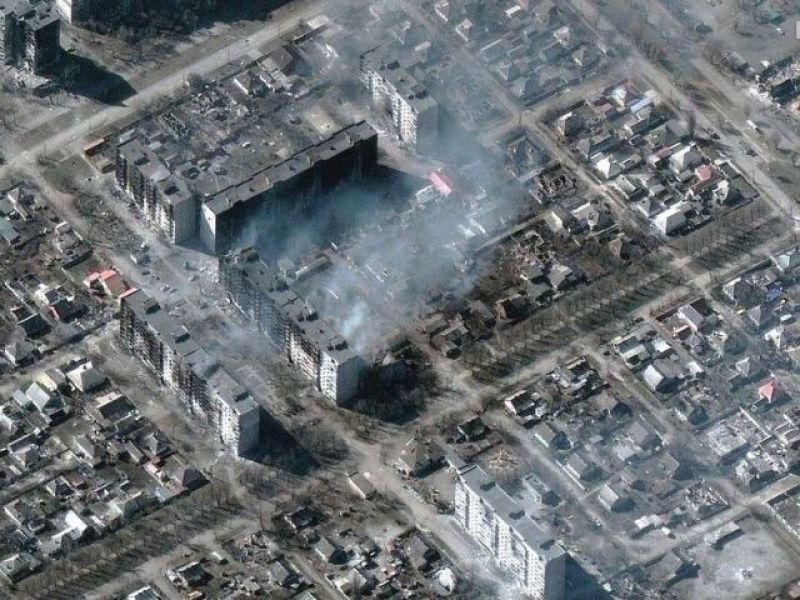
The United Nations and its partner agencies including the International Committee of the Red Cross are undergoing a safe passage operation for citizens trapped in the Azovstal steel plant in Mariupol and other areas in Ukraine.
According to the United Nations, at least 100 civilians were allowed to leave for the operation's first phase. United Nations Office for the Coordination of Humanitarian Affair's Saviano Abreu said in a statement that authorities of Russia and Ukraine have agreed to evacuate civilians trapped in the Azovstal steel plant for the last two months.
Putin Finally Agrees To Ukrainians' Safe Passage
The agreement particularly allowed children, women, and the elderly to be transferred from the plant to Zaporizka, which is north of Mariupol and free from the Russian army's invasion. The evacuees will then be received by partner agencies who will provide them with their necessary needs.
"They will receive immediate humanitarian support, including psychological services," Abreu said.
The safe passage corridor comes after weeks of several failed attempts with Russian President Vladimir Putin to secure such an agreement. Putin finally agreed last week after UN Secretary-General Antonio Guterres met with Putin in Moscow on the matter. Guterres similarly met with Ukrainian President Volodymyr Zelenskyy on this urgent need in Kyiv last Thursday before executing the operation through the aide of a Red Cross convoy on Friday.
"As the operations are still ongoing, we will not provide further details at this point to guarantee the safety of the civilians and humanitarians in the convoy," Abreu stressed.
"(The UN) will continue to push for the safe passage out of Mariupol city for all those civilians who wish to leave. The UN is engaging actively with parties to advance these efforts," he added.
Also Read: 22,000 People Killed By Russian Army In Mariupol
Ukrainians Experienced Hell In Mariupol
Abreu confirmed in a statement on Tuesday that 101 women were freed from the Azovstal steelworks' bunkers and finally see daylight. He said a separate group of 58 evacuees joined them in Manhush. They have also accompanied another 127 people to Zaporizhzhia where their needed humanitarian assistance will be provided. He also noted that other evacuees have decided not to join their convoy to Zaporizhzhia. He underscored the joy of the evacuees from the steelworks plant who he described were filled with tears upon reuniting with their families.
Abreu highlighted mothers who recounted the trauma they underwent in the steel plant where heavy shelling took place. The evacuees described the situation as hell where they suffered not only a grave lack of food, water, and sanitation but also the fear of death. He particularly cited the delight of a mother who saw her six-month-old son finally be able to play with straw grass. He noted that these stories testify to the cruelty of Putin's unjust war.
As per OCHA on Wednesday, the security situation has declined in Ukraine's Donetska, Kharkivska, Khersonka, and Luhanska oblasts as Russian shelling has intensified. Several infrastructures were attacked by Russian missiles resulting in 6,635 civilian casualties including 3,238 killed and 3,397 in Ukraine. The OCHA highlighted that the actual number of people who died is higher since many reports are pending confirmation. The agency also stressed that 4.1 million people continue to currently need protection and humanitarian aid.
"We cannot forget that the worst of crimes is war itself."
- @antonioguterres during his visit to #Ukraine. pic.twitter.com/rUx98Q4Ix3"” UN Humanitarian (@UNOCHA) April 30, 2022






















